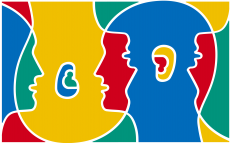
Email: reecejordan98@hotmail.co.uk
Total Article : 168
About Me:18-year-old sixth form student, studying English Literature, History and Government and Politics. My articles will broadly cover topics from the current affairs of politics to reviews of books and albums, as well as adding my own creative pieces, whether it be short fiction or general opinion.

Humans: the self-professed “most intelligent beings on the planet”. But what made us come to that conclusion? Was it our revelatory breakthroughs with modern science? Our inventions that enable us to capture a split second of a moment and immortalise it? Whatever great feat humans have accomplished that distinguishes us from other organisms on the planet all stems from one thing, thought.
That’s what places the human species at the top of the hierarchal system of organism intelligence, our capacity for thought. Thoughts are constructed by a method of elimination of all words except the specific words which we recognise have the specific meaning at which we are trying to convey, which is also how we attach names to things. James Wood uses the example of a tree, saying that we only call a tree a ‘tree’ by rejecting all of the other names which it could possibly have. Words are but syllables that we attach meaning to, so what makes them so pivotal in our lives?
For me, language is the ultimate medium of emotion. It allows others to recognise and empathise with your feelings by their own recognition of those particular words. But then its problems lie in the question of worldwide perception. How is anyone to know that their feeling of love or hate is the same as someone else’s, just like their perception of the colour red? So really language is a filteration system of our emotions, like senses are to reality. The thing I find most fascinating about language is how a sentence is like a formula to provoke a response. Words placed in just the correct order to bring out a reaction. This is most likely the reason as to why I yearn to extend my vocabulary as much as I possibly can, to be able to conjure up the right words apt to convey what I’m feeling.
Though, I don’t think I am alone in my obsession of knowing the word for a certain object or feeling, or a certain object or feeling for a word. I believe that there is an innate lust for knowledge of words or symbols for humans, as it is the basis for all we do. There is a true story named “Schaller meets Ildefonso” where Schaller, a teacher of sign language, mistakenly comes across someone who is completely deaf. The man seems frustrated and is constantly observing peoples’ mouths. It turns out that the man believed that the human species communicated with each other by the recognition of the certain movement of the lips. He lived his life solely on imitation; he could not attach meaning to lip movements as we do language. The woman eventually taught him one word in sign, “table”. To this, the man’s face showed immense euphoria and thus he started pointing to every object in the room with quivering hands, begging for the sign of it. After a while he froze and suddenly broke into tears. Schaller writes that “It was if he hadn’t seen a window before. The window became a different thing with a symbol attached to it, but it’s not just a symbol it’s a shared symbol”. The man had craved to be able to attach a symbol to something so that he could talk to someone else about it.
But these words, though can be one of the best ways of expressing emotion, can also be the ultimate mask over what it means to express. The human ability to think in turn allows us to override emotional impulses, to use our head over our heart. This allows us to create a smokescreen over our true feelings and create a facade. Has this allowed us, then, as Charlie Chaplin says, to create a society that “thinks too much and feels too little”?

0 Comment:
Be the first one to comment on this article.